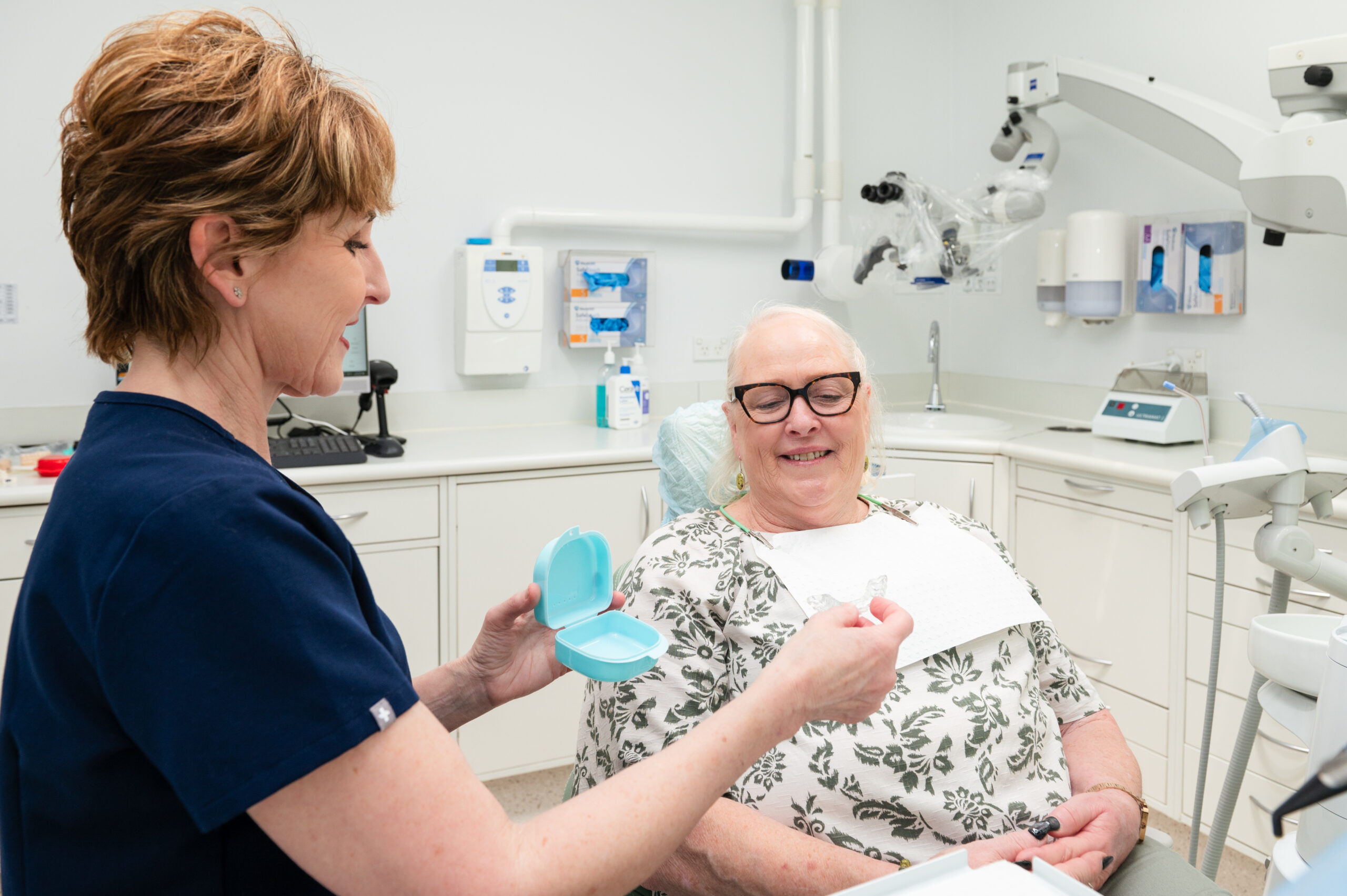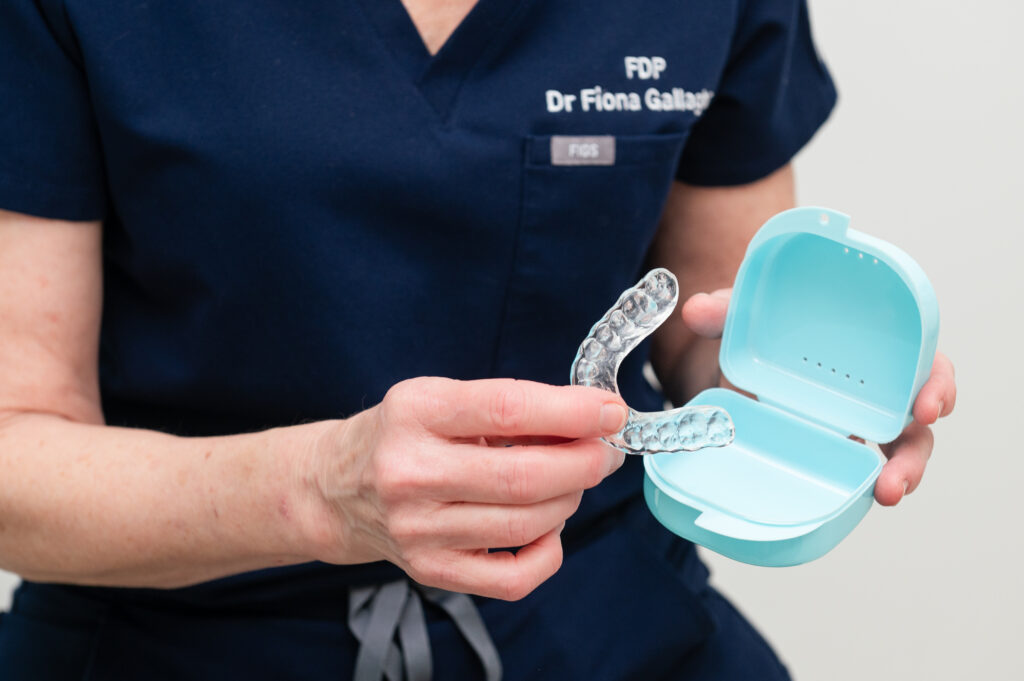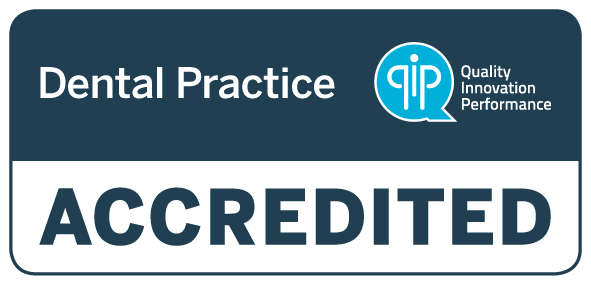TMJ & Bruxism Treatment in Brighton Le Sands
Comprehensive Care for TMJ & Bruxism
The temporomandibular joint (TMJ) connects the lower jaw to the skull, located in front of each ear. It’s unique because it both hinges and slides, enabling complex movements essential for chewing, speaking, and yawning. Given its frequent use, TMJ is prone to various disorders.

What are TMJ Disorders (TMD)?
Temporomandibular Disorders (TMD) encompass a range of problems associated with the jaw joint and muscles involved in jaw movement. These disorders can cause discomfort in the jaw, face, and neck and may affect jaw function.
Comprehensive Care for TMJ & Bruxism
Exercises to strengthen jaw muscles and improve mobility
- Muscle-Related Issues: Common among TMD sufferers, impacting the majority.
- Joint Issues: Includes conditions like internal derangement and dislocation.
- Osteoarthritis: Involves joint degeneration.
- Other Joint Diseases: Covers more severe pathologies.
Symptoms of TMJ Disorders
The symptoms of TMD can vary depending on the type and severity of the condition. Some common symptoms include
- Pain or tenderness in the jaw, face, neck, or shoulders
- Clicking, popping, or grating sounds in the jaw
- Difficulty or locking of the jaw
- Headaches, earaches, dizziness, or ringing in the ears
- Teeth grinding or clenching
- Facial swelling or asymmetry
- Fatigue in the jaw muscles
Diagnosis and Treatment of TMJ Disorders
Your dentist at Family Dental Practice in Brighton-Le-Sands will conduct a thorough examination, which includes X-rays to diagnose TMJ disorders accurately.
Treatment Options in Brighton-Le-Sands

Physical Therapy
Exercises to strengthen jaw muscles and improve mobility.
Medications
Including muscle relaxants and anti-inflammatory drugs.
Mouthguards
To prevent teeth grinding and jaw clenching.
Surgery
Considered in severe cases where other treatments have failed.
What is Bruxism?
Bruxism, commonly known as teeth grinding, often occurs during sleep. It can cause tooth wear, jaw discomfort, and can exacerbate TMJ disorders.
Symptoms of Bruxism
- Teeth Grinding or Clenching: Noticeable during sleep or upon waking.
- Jaw Pain or Discomfort: Pain in the jaw muscles or TMJ.
- Tooth Wear: Excessive enamel wear or damage to teeth.
- Headaches: Frequent headaches, especially in the morning.
- Sensitive Teeth: Increased sensitivity or discomfort in teeth.
Recognizing these symptoms can help in early intervention and management.
Causes and Treatment of Bruxism
Bruxism, caused by stress, anxiety, abnormal bites, or sleep disorders, can be managed with:
- Occlusal Splints: Custom-fitted devices, such as night guards (a type of occlusal splint), protect teeth from grinding, reduce jaw strain, and improve bite alignment.
- Stress Management: Techniques to lower stress and relax jaw muscles.
- Dental Correction: Adjusting the bite to reduce grinding.
When to Seek Treatment
Consult with Family Dental Practice if you have ongoing jaw pain, difficulty moving your jaw, or see excessive wear on your teeth. These symptoms may indicate bruxism or other dental issues. Early treatment can prevent further damage, alleviate discomfort, and improve your overall quality of life.
Testimonials
Posted onTrustindex verifies that the original source of the review is Google. I have been attending this practice for over 20 years with my family of 6. I have always found Dr Fiona and her staff to be very professional and caring. The cleanliness of this practice is pristine and you cannot fault them on their attention to detail. This is a very family orientated dental practice and all my children have grown up with Dr Fiona and her team and continue to attend. Highly recommended.Posted onTrustindex verifies that the original source of the review is Google. I have been seeing Fiona since I was a child and wouldn’t go anywhere else. Always clean, efficient and friendly!Posted onTrustindex verifies that the original source of the review is Google. Dr. Fiona and the rest of her team have been very accommodating ever since I had my first emergency visit with them. They check up on me after every visit and also sends me reminders. Thank you, Dr. Fiona and team!Posted onTrustindex verifies that the original source of the review is Google. I recently visited Dr. Fiona's practice for a dental check-up and cleaning as my usual practice had no open spots. I was impressed by the professionalism and cleanliness of the practice. Dr. Fiona, along with her team including Lisa the practice manager and Nicoly the dental assistant, were exceptionally warm and helpful. I wouldn't usually describe a dentist visit as "enjoyable," but they made it just that by alleviating any anxiety and ensuring the process was smooth from start to finish. Highly recommend!Posted onTrustindex verifies that the original source of the review is Google. Very friendly staff, helped with all my enquiries. Good overall service.Posted onTrustindex verifies that the original source of the review is Google. An exceptionally good Practice. Everything about Family Dental Practice is outstanding. The Staff is professional and knowledgeable yet warm, friendly and caring. They take time to listen and take into account your whole medical history for better understanding to provide best care. Everything from the clean, waiting rooms, the up to date equipment, the follow up phone calls from receptionist makes it a very pleasant experience.Posted onTrustindex verifies that the original source of the review is Google. Experienced practitioner, providing high quality results over many years. Fiona and her team are friendly and focused on excellent patient care.Verified by TrustindexTrustindex verified badge is the Universal Symbol of Trust. Only the greatest companies can get the verified badge who has a review score above 4.5, based on customer reviews over the past 12 months. Read more
Contact Us
For comprehensive care and treatment of TMJ and bruxism, contact Family Dental Practice in Brighton-Le-Sands today to schedule your consultation and find relief from your symptoms.
